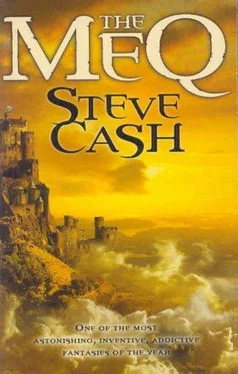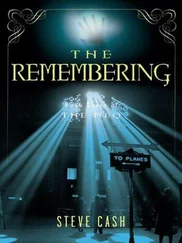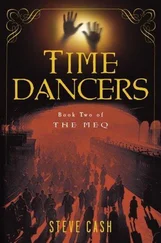Steve Cash - The Meq
Здесь есть возможность читать онлайн «Steve Cash - The Meq» весь текст электронной книги совершенно бесплатно (целиком полную версию без сокращений). В некоторых случаях можно слушать аудио, скачать через торрент в формате fb2 и присутствует краткое содержание. Год выпуска: 2005, Издательство: Del Rey, Жанр: Фэнтези, Детективная фантастика, ya, на английском языке. Описание произведения, (предисловие) а так же отзывы посетителей доступны на портале библиотеки ЛибКат.
- Название:The Meq
- Автор:
- Издательство:Del Rey
- Жанр:
- Год:2005
- ISBN:нет данных
- Рейтинг книги:4 / 5. Голосов: 1
-
Избранное:Добавить в избранное
- Отзывы:
-
Ваша оценка:
- 80
- 1
- 2
- 3
- 4
- 5
The Meq: краткое содержание, описание и аннотация
Предлагаем к чтению аннотацию, описание, краткое содержание или предисловие (зависит от того, что написал сам автор книги «The Meq»). Если вы не нашли необходимую информацию о книге — напишите в комментариях, мы постараемся отыскать её.
The Meq — читать онлайн бесплатно полную книгу (весь текст) целиком
Ниже представлен текст книги, разбитый по страницам. Система сохранения места последней прочитанной страницы, позволяет с удобством читать онлайн бесплатно книгу «The Meq», без необходимости каждый раз заново искать на чём Вы остановились. Поставьте закладку, и сможете в любой момент перейти на страницу, на которой закончили чтение.
Интервал:
Закладка:
Finally, on a clear but windy morning, we came within sight of In Salah, an ancient town in the heart of Algeria. It had been a crossroads for caravans, wars, and warriors for centuries. That day, although there were a few stragglers like us, it seemed desolate and nearly abandoned. Emme stopped an old herdsman who was leaving just as we were arriving and asked if there had been sickness or a threat of some kind to the people. In Berber, he replied, “No, no, only an Englishman, a soldier who has fled the war in the east. The people think other English soldiers will come after him. They want nothing to do with him, so they stay inside and wait for him to leave, but he doesn’t leave. He only sits in the shade and smokes Turkish tobacco. Very unpleasant, very bad.”
The old man waddled off and Emme shrugged her shoulders. We knew there was a war going on in Europe, and we knew there was fighting in Africa, but that was thousands of miles away, mainly in East Africa and South Africa and nowhere near the central Sahara. Emme thought that it was of no concern and told me to tend the animals while she went to post a letter to PoPo. I agreed without telling her what I really intended, which was to find the English soldier. I wanted news, English-speaking news.
I combed the markets and alleys of In Salah until finally, under the awning of an empty stall at the very edge of town, I found him, sound asleep in the shadows. He was snoring loudly and looked to be about twenty or twenty-one years old. His face was unshaven, but his beard was blond and barely more than peach fuzz. Either he or someone else had torn all the insignias off his ragged uniform. They were lying in a pile beside him, along with several papers, including a British newspaper. I figured he must be a deserter; there was no other reason for him being alone and so far from anywhere. I tried to find out what I could without waking him. I knew there was nothing I could do for him — not here and not now. Among his papers I discovered he had been in the Second Battalion of the Nigerian Regiment under Lieutenant Colonel Austin Hubert Wightwick Haywood. The name sparked a memory. I had heard the colonel’s name before in other remote parts of the desert. He was known as the only Englishman in recent years to have crossed the Sahara. I looked down at the sleeping young soldier and wondered if he had heard the same thing, maybe even tried to do the same thing. I would never know. I took the British newspaper and ran back to my goats and camels and began to read.
Minutes later, I discovered the United States had entered the war in Europe. That was no surprise. Sailor had always said the Giza would eventually find a way to fight a world war. The rest was not news, not really, just reports of what was in fashion — economically, culturally, spiritually. Two things did catch my eye. One made mention of a new American poet on the scene — Thomas S. Eliot — and I wondered if he could be the same boy on the bicycle who had been so infatuated with Carolina, then dismissed the thought as impossible. The other was an article, with pictures, of a new biplane that was going to be tested in Scotland as a seaplane. I could not believe how far men had come, once they learned to fly. The machine looked remarkable. There was something familiar about the name of the pilot, and I was squinting in the sun, trying to place it, when Emme’s shadow interrupted. I looked up and knew immediately something was wrong.
“What is it?” I asked.
She was trembling slightly. She handed me a letter, but it never made the exchange. It dropped in the dust and I picked it up.
“It was waiting for me,” she said slowly. “It has been here more than a month.”
I opened the letter and looked at it. It was in French and I only understood a few words. However, I could read the signature at the bottom clearly — Jean-Luc Leheron.
“What does it say?” I asked, then changed my mind. “No, what does it mean?”
“It means I have to leave, go back to Dogon land — now — today”
I knew there would be only one answer to my next question, one small seed of an answer. “PoPo?”
“Yes. He is. not well. He is. ” She stopped, then swallowed hard. “He is dying.”
“Then I’ll go with you.”
“No, you will not. You will go on and stop this abomination. You must — we have never been this close to her. If you left now, you might not get back in time. many things might happen, many things. You will free that girl. She will fear you, she will have another name, but you will free her. You must! You will free her as you would a bird. You will do this because you were meant to do this. You have no choice, as I have no choice. PoPo is my blood and I know you understand this, Z, more than I.”
I looked at her and knew without a doubt she meant what she was saying, and that what she was saying was true. There was no other way for it to be. Any delay was just that. “Then I think we’ll only say a temporary farewell, Emme Ya Ambala. I have not yet seen enough of you in this world.”
“I feel the same, Zianno Zezen. There will be a day somewhere, somehow, and you will introduce me to Star. That will be a good day”
We embraced in the sand with grit swirling around us. The wind was coming from the west and picking up. I heard dogs barking in the distance. The sun was low, but the sky was still bright with several hours left in the day. Emme loaded her camel with supplies, then climbed on, ready to head south.
“You will have to learn some new dialects,” she shouted down at me.
“I will talk backward,” I said, “it always works.” Then something else came to me. “ ‘I, now forty-seven years old in perfect health, begin, hoping to cease not till death—’ ”
“I am impressed,” she said, ‘’ ‘Song of Myself,’ but the correct age is thirty-seven.” She was laughing. “You are crazy.”
“Someone else told me that once. Do you know what I told her?”
“No, what?” Emme shouted back. She was already moving, swatting at the camel and straightening the reins. The camel groaned and balked as always. I walked alongside.
“Egibizirik bilatu.”
“What does it mean?”
“Something about truth,” I yelled. She was pulling away.
“I will remember that,” she yelled back. “Is it old?”
“Yes,” I shouted, but I knew she couldn’t hear me any longer. She was only a blue dot melting into a shimmering, shapeless horizon. “It is very old,” I whispered.
I left In Salah two days later, moving north and east, slowly at first — one day, one night at a time. As I crossed the oldest north — south caravan route from Ghadames to the Niger, I traveled even more slowly. I bought two more goats and a donkey. It was twice as slow and twice as convincing. By the time I got to the sandstone cliffs and hidden canyons of the Tassili-n-Ajjer, I was a full-time goatherd.
Mulai and Jisil’s “property” was neither legal nor defined by boundaries in any way. It was what they could hold on to and defend. However far that defense was extended was their current “property” line. Sentries on horseback and in pairs usually patrolled the entire remote area surrounding the al-Sadi camps. Occasionally, one sentry would be posted for a few months at a time near strategic passes and lookout points. My goats and I found one of these passes at the northern end of the Tassili range. There were two small streams and ragged pastures nearby and in the cliffs all around were caves and grottoes where I could camp and make myself familiar with the sentry, who would be lonely, hungry, and angry at being posted so far from his main camp. At least, this was what I hoped for, since disenchanted soldiers sometimes say more than they should. I had to find out anything I could, in any way I could, about the “bluebird.” It was still early in what passed for spring in the Tassili-n-Ajjer, but the deadline the camel driver had mentioned was only months away.
Читать дальшеИнтервал:
Закладка:
Похожие книги на «The Meq»
Представляем Вашему вниманию похожие книги на «The Meq» списком для выбора. Мы отобрали схожую по названию и смыслу литературу в надежде предоставить читателям больше вариантов отыскать новые, интересные, ещё непрочитанные произведения.
Обсуждение, отзывы о книге «The Meq» и просто собственные мнения читателей. Оставьте ваши комментарии, напишите, что Вы думаете о произведении, его смысле или главных героях. Укажите что конкретно понравилось, а что нет, и почему Вы так считаете.












